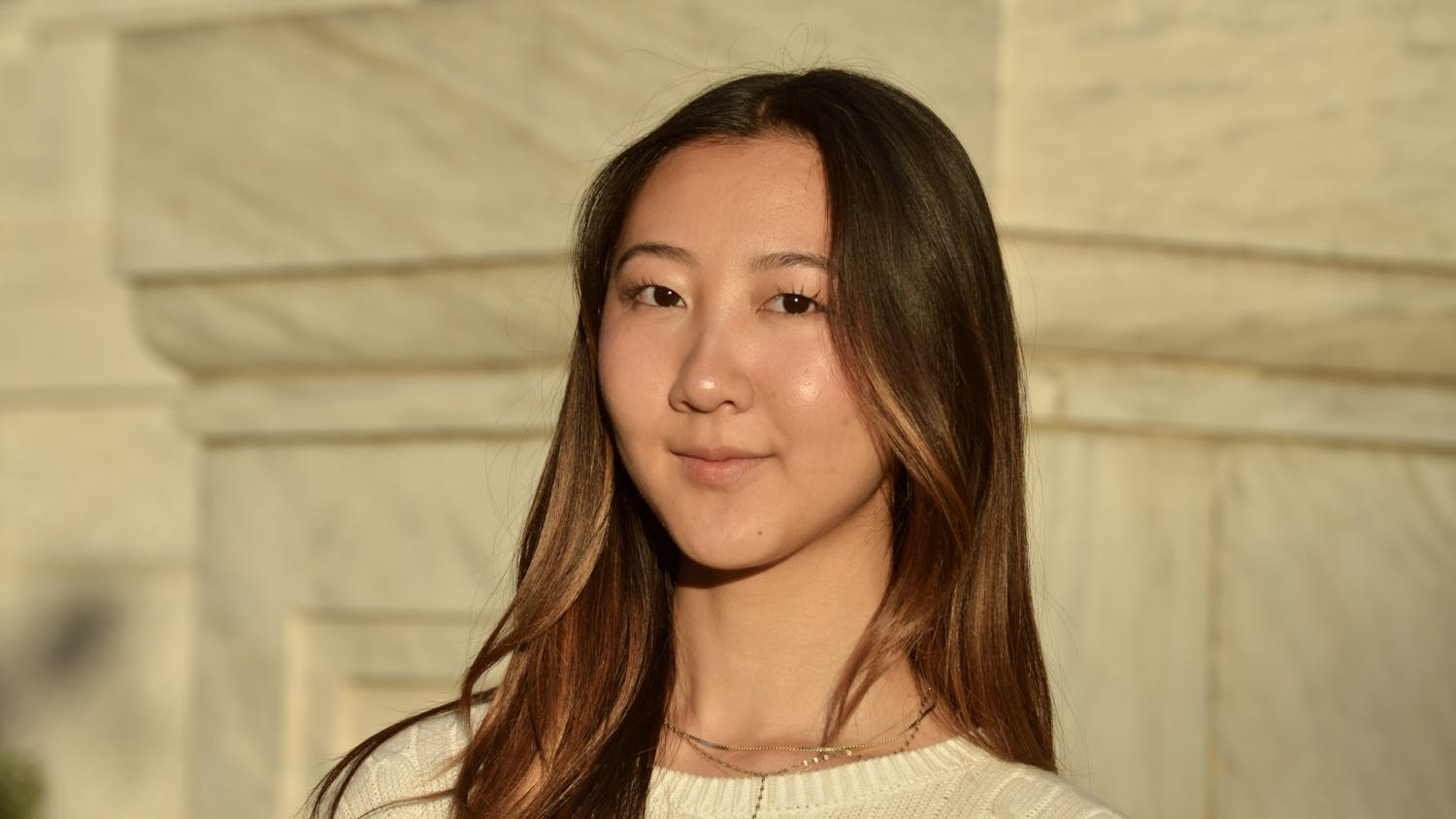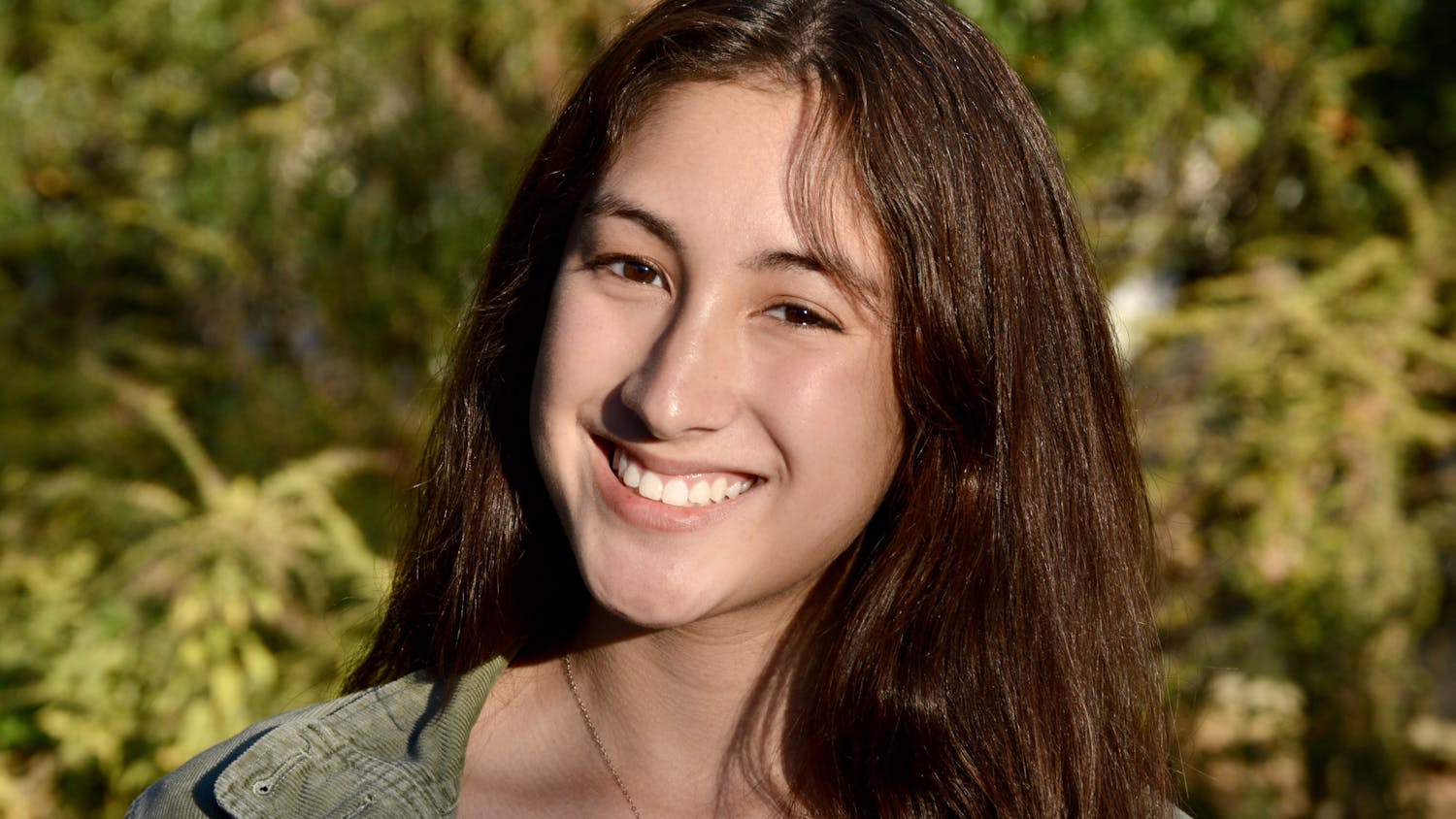Eagle columnist Shelby Ostergaard has written an eloquent plea for AU to divest from its energy stocks (Divestment necessary for AU’s future, April 18 Eagle), but it rests on two assumptions, one unproven and the other incorrect. First, Ostergaard claims that if energy companies “burn all the oil they currently have, the temperature of the world will go up six degrees.” Then she reports that “every AU student has had, in at least one class, a discussion about climate change and the havoc that oil drilling is imposing on our planet.”
In her first assumption, Ostergaard is simply repeating what climate modelers call “scenarios,” not even predictions, that occur when computers are run for a hundred years forward using the opaque models that have been “tuned” to replicate temperatures over the past 100 years. As someone who has guided students through the models and statistics of climate change here at AU for the past decade, I can tell your readers that the models, while fascinating in their construction, are in their infancy, both in looking backwards and in looking forwards. They certainly have misfired badly over the past 15 years, predicting one of those degrees of temperature rise but seeing, in reality, absolute zero.
In her second assumption, Ostergaard appears to misunderstand the nature of instruction. Of course we professors introduce issues relating to claims of “climate change” but not to impose on our students a belief that oil drilling creates “havoc.” We certainly hope that students will form an opinion, based on the way we have taught them to analyze evidence for themselves, about whether it was more likely natural fluctuation or industrial gas that caused the one degree rise in temperature from 1860 to 2000, and whether that one degree rise has led to havoc in hurricanes, droughts and sea level rise. But the data are weak on all of these questions, and it is not our job to make those judgments for them. Similarly, the University as a whole is not able to decide these difficult and uncertain scientific questions, and so should not be choosing stocks on the basis of allegations of “climate change.” The same holds true for hydraulic “fracking,” to which Ostergaard is so opposed. The trade-offs between the environmental risks and the economic payoffs are many and varied, and should be decided by elected politicians, not appointed academics.
As someone who also teaches African politics, I would argue that even if the scariest climate change scenarios come true, there is a strong moral argument for not applying divestment to energy companies working in Africa. I am a great believer in divestment as a tactic in achieving social justice. I worked on the anti-apartheid divestment campaign both in college and as a staffer in Congress. But this time, divestment will harm, not help, Africans.
“The trade-offs between the environmental risks
and the economic payoffs are many and varied,
and should be decided by elected politicians, not appointed academics.”
A successful divestment campaign would be a death sentence for African economic development and millions of Africans. Like many other areas in the developing world, Africa has not achieved the carbon-based industrialization that has boosted education, comfort, income and life expectancy to record levels in the developed world. Even if Africa did make the leap, it would still account for only about 5 percent of global emissions. America’s per person emissions are 20 times higher.
African economic development is being derailed by a lack of reliable consumer and industrial electricity. According to the World Bank, only 24 percent of Africans have access to electricity, which is being denied them on the basis of the supposed environmental dangers of electricity. The rest must resort to burning dung and wood in their houses and huts, leading to horrific rates of lung and heart disease.
The typical African business loses power 56 days each year, severely constraining investment and output in commerce, agriculture, education and industry. Growth suffers, and because wealth allows people to live healthily, so does life expectancy. Energy poverty is stunting the sort of economic growth that Africa needs if it is to move from 59 years of life expectancy to the 79 that China has achieved through 20 years of economic growth fueled by intense, government-backed promotion of carbon-based electrical capacity. With almost a billion Africans alive today, that is about 20 billion years of life lost.
As it was under apartheid, so it is for energy now: it is for the Africans, not the West, to decide. They wanted freedom then, and they want reliable electricity now. There is a right to development just like there is a right to democracy. Let’s listen to Africans’ voices as they call for 100 percent access to electricity. Let’s envision the children sitting in their huts as deadly wood smoke swirls around them, with the fire too dim for them to read their homework assignments. Please, AU, let’s divest from the call for energy divestment.
Caleb Rossiter is an adjunct professor in the School of International Service.




